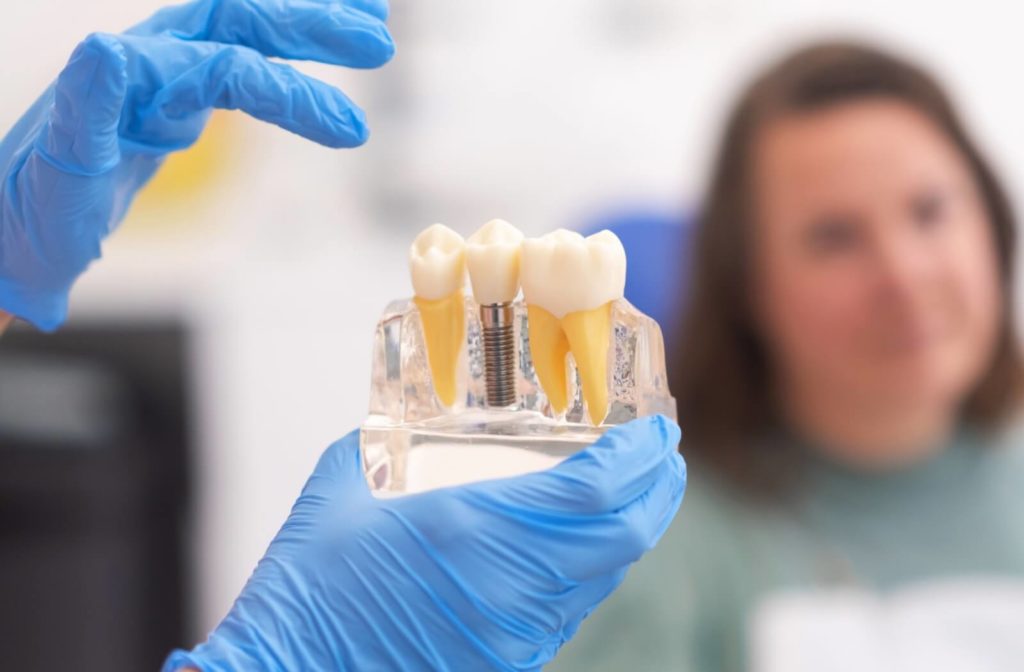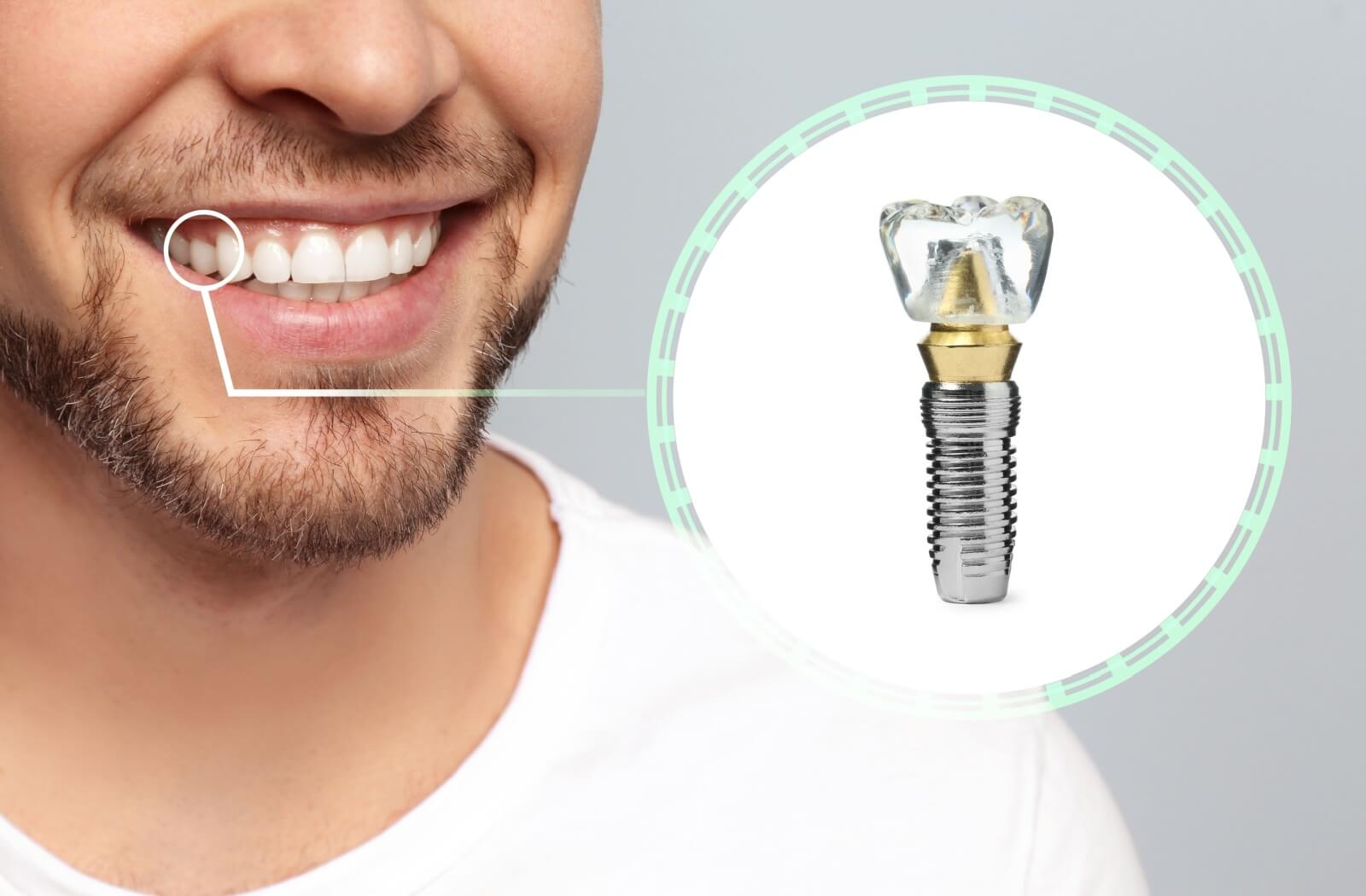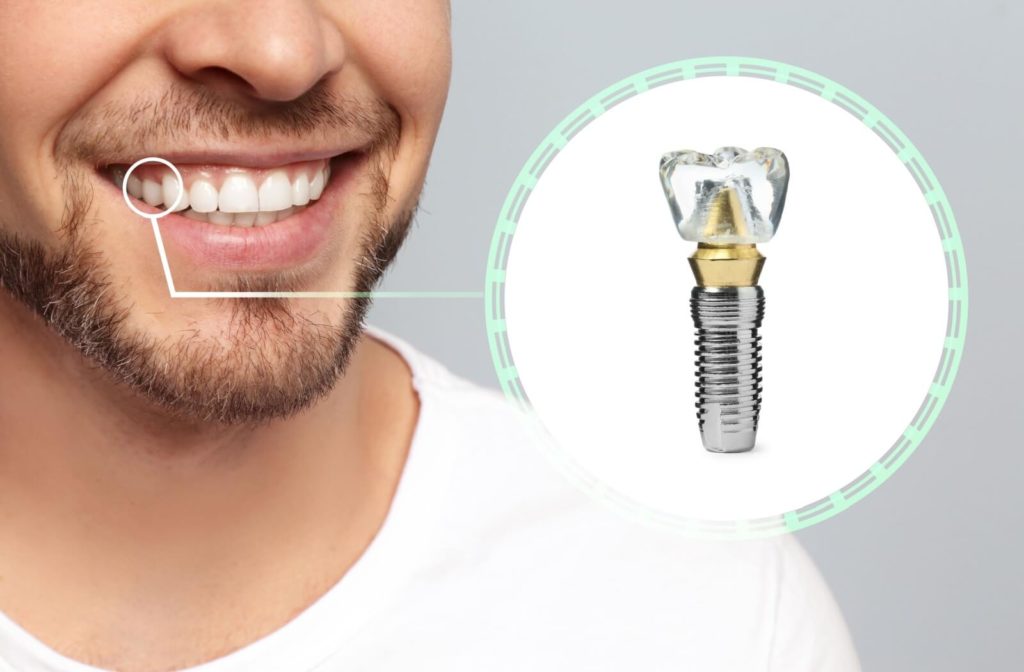Dental implants are a popular and effective solution for replacing missing teeth, and offer a permanent alternative to dentures and bridges. Many people considering implants wonder how long their dental implants will last and what factors contribute to their longevity. At Heritage Pointe Dental, we specialize in providing high-quality dental implants and comprehensive care to ensure the long-term success of your smile. Visit our Dental Implants page to learn more about the services we offer and how we support your dental health journey.
Dental implants may last a lifetime with proper care. However, the lifespan of an implant is influenced by several factors, including the patient’s oral hygiene, lifestyle habits, and overall health. In this blog, we’ll explore what you can expect from your dental implants and how to maximize their longevity.
Understanding the Structure of Dental Implants
Dental implants are made up of a root and artificial tooth. The implant, typically made of titanium, is surgically placed into the jawbone and acts as the root of the artificial tooth. The abutment connects the implant to the crown, which is the visible part of the tooth that resembles a natural tooth in appearance and function.
The implant is designed to integrate with the jawbone through a process called osseointegration, where the bone grows around the implant, securing it firmly in place. This integration is crucial for the long-term stability and success of the implant.
Factors That Affect the Lifespan of Dental Implants
While dental implants have the potential to last a lifetime, their durability can be influenced by several factors:
Oral Hygiene
Maintaining good oral hygiene is essential for the longevity of your dental implants. Regular brushing, flossing, and professional cleanings help prevent gum disease and infection, which can compromise the implant.
Bone Health
The success of dental implants relies heavily on the health of the jawbone. Adequate bone density and quality are necessary for the implant to integrate properly. If the bone deteriorates over time, this can lead to implant failure.
Lifestyle Habits
Certain habits, such as smoking or excessive alcohol consumption, can negatively impact the lifespan of dental implants. Smoking, in particular, has been linked to a higher risk of implant failure due to its effects on bone healing and gum health.
Diet and Nutrition
A balanced diet rich in vitamins and minerals supports overall oral health, including the health of the gums and jawbone. Poor nutrition can weaken these structures, affecting the stability of the implant.
Medical Conditions
Conditions such as diabetes or osteoporosis can impact the longevity of dental implants. It’s important to manage these conditions effectively and discuss any concerns with your dentist to ensure the best possible outcome.
Regular Dental Check-ups
Regular visits to your dentist for check-ups and cleanings are crucial for monitoring the health of your implants and addressing any issues early on. Your dentist can also assess the condition of the implant and surrounding tissues to ensure everything is functioning properly.

How Long Do the Components of a Dental Implant Last?
While the implant itself is designed to last a lifetime, the crown and abutment may need to be replaced over time. Here’s what you can expect from each component:
- The Implant: With proper care, a titanium implant can last a lifetime. An implant is highly durable and resistant to decay, making it a long-lasting solution for tooth replacement.
- The Abutment: The abutment, which connects the implant to the crown, is also made of durable materials, but may need to be replaced if it becomes loose or damaged. The abutment is made up of either titanium, zirconia or gold alloy.
- The Crown: The crown is the most visible part of the implant and is subject to wear and tear from daily use. Crowns typically last 10 to 15 years, but with good oral hygiene and regular dental visits, they can last longer. Over time, the crown may need to be replaced due to normal wear or damage.
Tips for Maximizing the Lifespan of Your Dental Implants
To make sure your dental implants last as long as possible, consider the following tips:
- Maintain Excellent Oral Hygiene: Brush your teeth at least twice a day and floss daily to keep your gums healthy and prevent infection around the implant.
- Schedule Regular Dental Check-ups: Visit your dentist regularly for professional cleanings and check-ups to monitor the health of your implants and address any issues early on.
- Avoid Smoking: If you smoke, consider quitting to reduce the risk of implant failure and support overall oral health.
- Eat a Balanced Diet: A diet rich in nutrients supports the health of your gums and jawbone, which are essential for the longevity of your implants.
- Protect Your Teeth: If you grind your teeth at night, talk to your dentist about getting a night guard to protect your implants from excessive wear.
Maximizing the Lifespan of Your Dental Implants
Dental implants are a durable and long-lasting solution for replacing missing teeth, with the potential to last for many years when properly cared for. The implant itself is designed for permanence, while the crown and abutment may need replacement after 10 to 15 years.
By maintaining good oral hygiene, adopting healthy lifestyle habits, and visiting your dentist regularly, you can maximize the lifespan of your dental implants and enjoy a confident, healthy smile for years to come.
For more information on dental implants and personalized care, visit Heritage Pointe Dental and book your appointment today.



